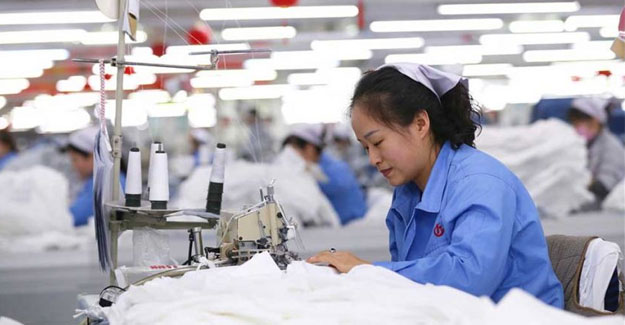
Chinese Textile Companies Bank On BRI For Growth
China's textile industry, a sector that provides jobs to over 27.15 million people in both production and sales, will tap more growth seams in economies related to the Belt and Road Initiative (BRI) and improve garment makers' innovation capabilities to stay competitive this year, said a senior industry official. As participating countries are expected to sign the Regional Comprehensive Economic Partnership (RCEP) this year, China's textile industry must accelerate the adjustment of products, capacity and trade structure to better integrate regional development in the next stage, said China National Textile and Apparel Council president Sun Ruizhe. "The simplification and unification of rules will boost resource flows within the region, and cut transaction costs and risks," he said, adding that the RCEP will further enrich regional cooperative content in areas such as digital economy and intellectual property protection, paving the way for future cooperation among industries across the mega trade bloc. The rise of emerging markets such as Vietnam, India and Bangladesh has also changed the division pattern of labour and trade in the global textile business, he said. Affected by weak demand from developed markets and the rise of protectionism, China's textile and apparel exports dropped 2.2% year-on-year to US$ 232.31 billion between January and October last year, data from Beijing-based CNTAC shows. In the meantime, China's textile and apparel shipments to the US, the EU and Japan declined 4.5%, 5% and 5.5% year-on-year respectively, while its total exports to countries and regions participating in the BRI grew by 1.3%, and exports to Africa jumped 6.6% from the same period a year earlier. To improve the product value and tackle climate change, Sun said green textile products have already become the new trend in the textile industry. "Textile makers in China have already begun to adopt renewable energy sources, environmentally friendly textile materials including biomass fibre and recycled substances to make the whole production process pollution free, as well as cut dependence on crude oil when producing common synthetic materials such as nylon or polyester," he said. Ningbo Peacebird Fashion Co Ltd, a Zhejiang-based multi-brand fashion company, plans to expand its global presence with more flexible branding strategies, international designers and innovation. Zhang Jiangping, the company's chairman, said the firm will enter overseas markets such as Vietnam and Malaysia soon, after learning of local consumers' higher purchasing power and changing lifestyles. "China has fabulous designers, a large market, and outstanding brands, but it needs to make global consumers aware of the charm of Chinese brands, which certainly can be promoted on a bigger stage," he said. The business executive also found that crossover branding has become a hot term for many sectors. "Brand collaboration arouses consumers' curiosity, giving them a new reason to spend. It usually generates unexpected market feedback and decent sales both at home and abroad," he said.
Textile Excellence
If you wish to Subscribe to Textile Excellence Print Edition, kindly fill in the below form and we shall get back to you with details.













